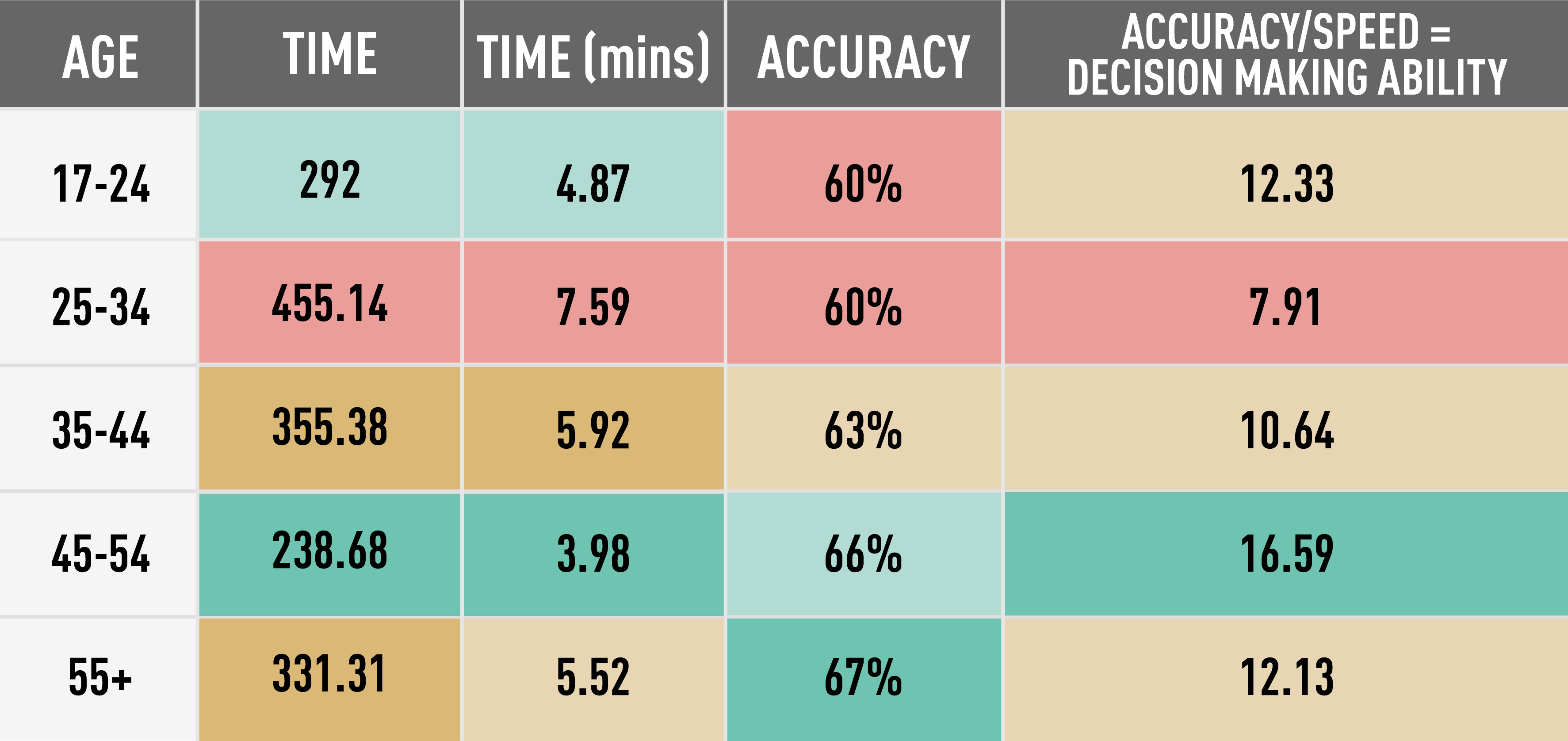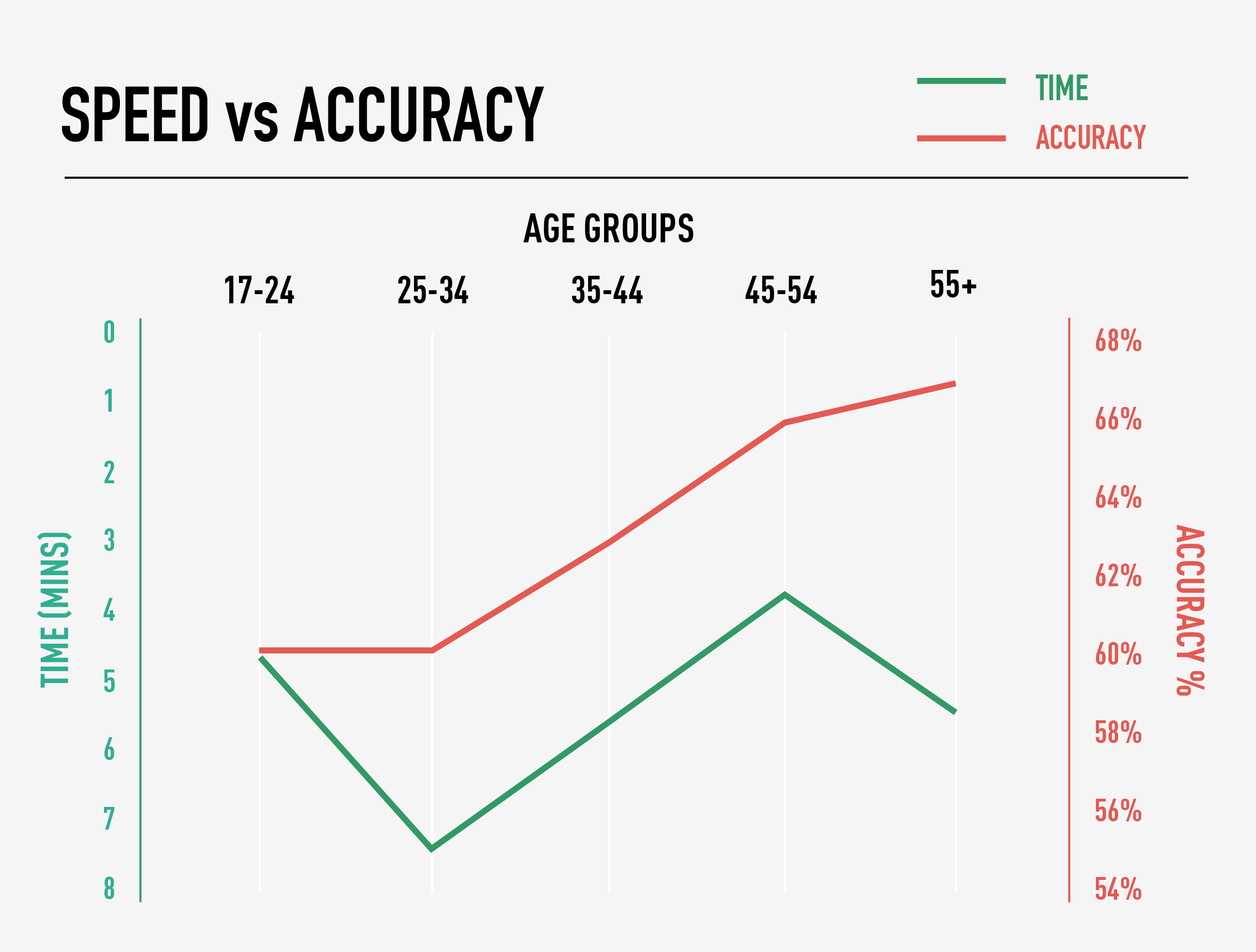Decisions, Decisions! Experience does count!
Rias finds the best decision-making drivers
-
45 – 54 year olds balance both speed and accuracy in their driving decisions
-
Over 55s most likely to change their driving behaviour following an accident.
-
Despite new driving laws, 55% of UK drivers still wouldn’t stop when safe to make a telephone call if running late for an appointment
-
London drivers are the UK’s most accident prone motorists
-
Rias has launched a Decision Time Quiz to test motorists’ speed and accuracy across a range of driving scenarios
Today, insurance provider Rias showcases the UK’s best decision makers on the nation’s roads. Every single day in Britain there are serious car crashes, with over 25,000 people being killed and severely injured each year1. Road users’ abilities to make quick, careful decisions can literally mean the difference between life and death.
Working with the Driving Doctor, Dr Paul Ripley, Rias asked over 2,000 UK drivers who drive regularly to review a number of driving situations and choose the option they would undertake if behind the wheel2. It’s clear some people need to brush up on their driving theory to help make Britain’s roads safer.
Overall, the results of the research show that:
-
45 – 54 year olds were the fastest driving decision makers, combined with a high accuracy score;
-
Over 55s were the most accurate driving decision makers;
-
It’s speed ahead of accuracy for younger drivers, with 17 – 24 year old drivers the second quickest, yet the least accurate.

Paul Ripley, The Driving Doctor, says: “Most accidents are caused by driver error, and even the few that may be blamed on mechanical defects are usually the result of inadequate vehicle checks or maintenance. Self-awareness and compassion for other road users, as well as our attitudinal approach to safety, are as important as observation and anticipation behind the wheel, and it's essential to constantly analyse our own driving behaviour – particularly after a near miss, so drivers have a process in place to avoid having accidents.”
New laws are now in force, imposing greater fines and giving motorists six points on their licence, as driving whilst using a mobile phone has been recognised as one of the main driving distractions in the UK – and drivers who have passed their test within two years of being caught will lose their licence3. Over half of the UK’s drivers (55%) would not pull over and stop when safe to do so to make a call when running late for an appointment. Almost one quarter (24%) of young drivers (17 – 24 year olds) said they’d use a hands-free device to warn people that they would be late – the highest proportion of all age groups – even though the police can still stop and prosecute motorists if they think drivers are not in control and distracted.
Interestingly, motorists up and down the country demonstrate different approaches to their driving skills and how they deal with different situations:
-
Crashes in the capital: London drivers are most likely to have an accident whilst driving, with 28% having made a claim in the last 5 years as a result of a collision;
-
Mirror, mirror: Drivers in Scotland (85%) are the best at using their mirrors to improve awareness to dangers;
-
Slippery when wet: Wet roads in the West Midlands are not a problem for 79% of drivers who are confident to handle a skidding car;
-
In the dark: 25% of Londoners don’t think anything of driving at night without any lights on – the highest number in the UK.

Adam Clarke, Managing Director at Rias says: “Our roads have never been more congested and that means our driving skills need to constantly evolve. At Rias, we encourage safer driving. If you think your decision making abilities aren’t what they should be, it may be time to think about undertaking some refresher training or potentially making a lifestyle change. While giving up driving may be a tough decision, honest self assessment is vital in ensuring the safety of both yourself and other road users.”
Rias’s Decision Time Quiz can be found here.

